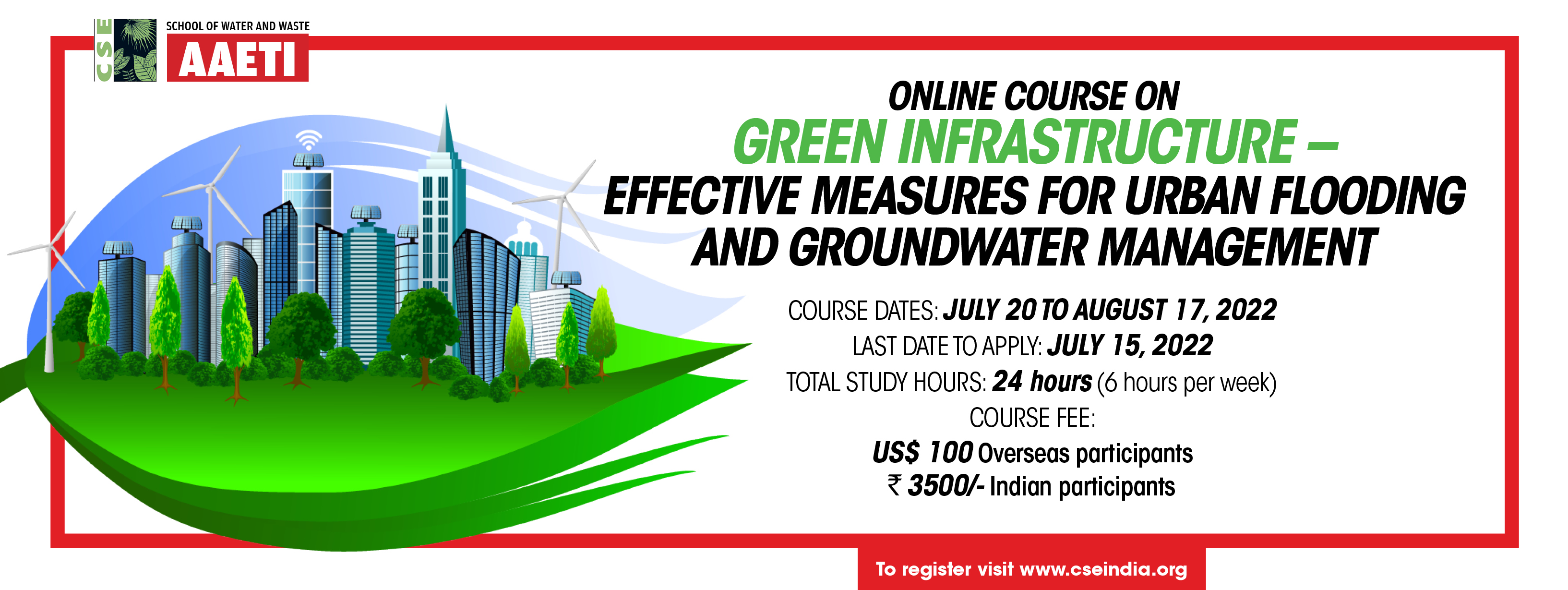
Cities in the global south are growing and expanding rapidly. Rapid, unplanned urban growth leads to its own set of problems. Our fresh water sources are reducing, cities encroach and pollute them as wastewater is disposed into water bodies untreated and groundwater exploitation is rampant. Floods in Chennai and Mumbaiand drying cities like Cape Town and Dar E Salam over therecent past have been devastating for human life and property. Experts identify increased unplanned urban growth, grey infrastructure and reduced green spaces as the major root causes tomany of these issues.
Green Infrastructure thus provides a new concept - a ‘smart’ method for natural conservation and urban planning. It is high time we realize that ecosystems are not a frill but a necessity.
Augmenting urban green infrastructure is considered to be an effective approach to reduce the adverse impact of urbanization on the hydrological cycle. They improve natural water systems in cities and dampen peak flows from storms that frequently lead to flooding in our cities to help create more water sensitive cities. Expansion of urban green infrastructure interventions is not only an economical and environmentally-friendly approach to deal with storm water runoff and urban flooding, but can also improve the resilience and sustainability of cities.
CSE - School of Water and Waste is organizing this online course. The course aims to build basic orientation of practitioners on GI and eventually build a community of practice who can successfully work towards designing and implementing green infrastructure interventions in town/ cities.
Purpose
To help students, working professionals and environmental enthusiasts learn state-of-art concepts and principles of green infrastructure for improved urban water management at their own comfort and pace.
Objectives
- Define and conceptualize green infrastructure for water resource management in urban areas
- Provide an overview of the current problems with water infrastructure
- Understand the GI approach and strategies for analyses with regard to planning for different urban typologies
- Recognize scope for GI interventions based on different problem scenarios and contexts
- Understand and apply case studies in support of GI principles across the world
- Course Director: Depinder Kapur
- Course Coordinator: Shivani Y